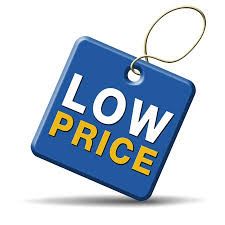-
 Written by Jiles Halling
Written by Jiles Halling
I think this is a pure cop-out and in my view it is an excuse that is trotted out to disguise the fact that there are way too many people in the wine industry who are either too lazy or who lack the skills to sell properly.
I suspect that many people will disagree with me and I admit that I see only one side of the story so I’d appreciate hearing from importers and distributors and retailers who can tell me why they think I’m wrong ( or perhaps, just maybe, think again about what their role is in the value chain).
Adding Value
That word ‘value’ is a good place to start to explain my point of view.
It is far too easy to assume that value simply mean a low price. The two are not the same.
In my view the sales person's job is to sell at the highest possible price consistent with the quality of the product. Sure you need some help from the producer to provide you with the basic selling arguments and information you’re going to need to sell to your customers, but the producer can’t provide you with the marketing tools if the ex-cellar price has been screwed into the ground.
Besides the role of the importer/distributor / retailer is to add value by convincing the buyer of the quality of the product so that the buyer is happy to pay the price asked so that everyone from producer to consumer has a fair deal. This is sometimes not easy and regrettably, so it seems to me, when faced with any difficulty the easy knee-jerk solution is to tell the producer that he/she must reduce the ex-cellar prices.
Beating the market
Another commonly heard comment from wine buyers in the trade is “The market price for your type of wine is only $X and that means we have to buy at $Y”
I respectfully disagree. This is too mechanist and unimaginative way to approach the issue.
I worked for many years for several major wines & spirits brands. It was always made clear by the bosses that results that were merely in line with the market performance were unacceptable. The people in the sales force – me included – were paid a good salary to exceed the market trends. If we couldn’t do that then management couldn’t see much point in employing us – better to just leave the market to determine the sales results. I think we can all agree that no CEO who wants to retain his job long would accept such a situation. So the sales force had to come up with ways to beat the market in terms of sales volume and sales value and that is exactly what a champagne ( wine ) producer expects from his or his import and distribution partners.
Consumer expectations
Yet another pretext for demanding low ex cellar prices is that “Consumers are more savvy these days. They know what the ‘right’ price is and that’s all they are willing to pay”.
Of course consumers want to feel that they have a good deal but that does not automatically mean a low, low price. You only have to look at the prices paid for some of the top brands to see this is true. Often a price that is slightly above the norm is intriguing for the consumer who wants to understand why. This is a great opportunity for any sales person to use their sales skills and provide the information, justify the higher price and leave the buyer/ consumer happy to pay a little more.
This is particularly true for champagne which is seen as something of a luxury purchase. Buying champagne whether it be for oneself, to share with friends or to give as a gift is an indulgence that is designed to give pleasure to the giver and the recipient. It’s illogical to believe that any buyer would chose only the cheapest price available – where is the pleasure and sense of self-worth in that? It is also illogical, and frankly damaging, constantly to think that marking prices down is the only way to sell champagne.
Two final points
1) Note that I am not advocating that anyone reduce their margins in order to keep the re-sale price as low as possible; quite the opposite in fact. What I’d like to see is better selling and marketing so that margins could be maintained at every level of the chain.
2) I’m leaving aside the question of whether or not the wine is good quality – we have to assume that it is because a) the importer has said he/she likes it and b) no wine sales person who offered wine that he/she truly believed to be poor quality would last long in business.
So that’s why I feel that the plea for the ex-cellar prices to come down and down again so as to re-sell as cheaply as possible is way too facile an approach that demands no skill and produces little or no benefit and little or no satisfaction.
Let me know if you agree or disagree and please say why.
Comments of Wines Inform Assessors:
I think the answer is to have always fair prices, good for all people in the business, and the first, for the final consumer
Not only price is the question obviously, but also the winery´s story, the personal story of producers, the continous quality in products -is a problema when somebody represent a winery that falls in quality as mentioned by Jason Lewis...what to do in this case when relations are so long entertained between parts? -
Wines Inform Assessors








No hay comentarios:
Publicar un comentario